Related Research Articles
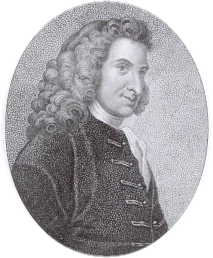
Henry Fielding was an English novelist, irony writer, and dramatist known for earthy humour and satire. His comic novel Tom Jones is still widely appreciated. He and Samuel Richardson are seen as founders of the traditional English novel. He also holds a place in the history of law enforcement, having used his authority as a magistrate to found the Bow Street Runners, London's first intermittently funded, full-time police force.
The Whigs were a political faction and then a political party in the Parliaments of England, Scotland, Ireland, Great Britain and the United Kingdom. Between the 1680s and the 1850s, the Whigs contested power with their rivals, the Tories. The Whigs merged into the new Liberal Party with the Peelites and Radicals in the 1850s, and other Whigs left the Liberal Party in 1886 to form the Liberal Unionist Party, which merged into the Liberals' rival, the modern day Conservative Party, in 1912.

Robert Walpole, 1st Earl of Orford, was a British statesman and Whig politician who, as First Lord of the Treasury, Chancellor of the Exchequer, and Leader of the House of Commons, is generally regarded as the de facto first Prime Minister of Great Britain.
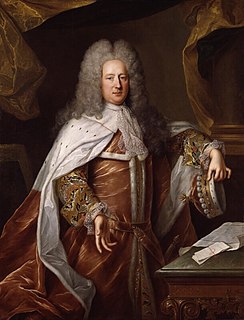
Henry St John, 1st Viscount Bolingbroke was an English politician, government official and political philosopher. He was a leader of the Tories, and supported the Church of England politically despite his antireligious views and opposition to theology. He supported the Jacobite rebellion of 1715 which sought to overthrow the new king George I. Escaping to France he became foreign minister for the Pretender. He was attainted for treason, but reversed course and was allowed to return to England in 1723. According to Ruth Mack, "Bolingbroke is best known for his party politics, including the ideological history he disseminated in The Craftsman (1726–1735) by adopting the formerly Whig theory of the Ancient Constitution and giving it new life as an anti-Walpole Tory principle."
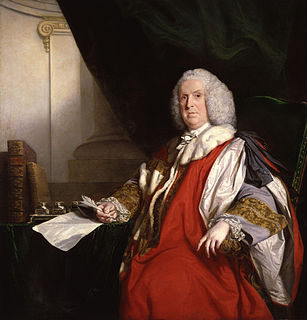
William Pulteney, 1st Earl of Bath, was a British Whig politician who sat in the House of Commons from 1707 to 1742, when he was created the first Earl of Bath by King George II.

Thomas Pelham-Holles, 1st Duke of Newcastle upon Tyne and 1st Duke of Newcastle-under-Lyne, was a British Whig statesman who served as the 4th and 6th Prime Minister of Great Britain, his official life extended throughout the Whig supremacy of the 18th century. He is commonly known as the Duke of Newcastle.

Spencer Compton, 1st Earl of Wilmington, was a British Whig statesman who served continuously in government from 1715 until his death. He sat in the English and British House of Commons between 1698 and 1728, and was then raised to the peerage and sat in the House of Lords. He served as the prime minister of Great Britain from 1742 until his death in 1743. He is considered to have been Britain's second prime minister, after Robert Walpole, but worked closely with the Secretary of State, Lord Carteret, in order to secure the support of the various factions making up the government.
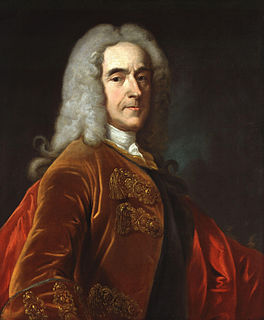
Richard Temple, 1st Viscount Cobham was a British soldier and Whig politician. After serving as a junior officer under William III during the Williamite War in Ireland and during the Nine Years' War, he fought under John Churchill, 1st Duke of Marlborough, during the War of the Spanish Succession. During the War of the Quadruple Alliance Temple led a force of 4,000 troops on a raid on the Spanish coastline which captured Vigo and occupied it for ten days before withdrawing. In Parliament he generally supported the Whigs but fell out with Sir Robert Walpole in 1733. He was known for his ownership of and modifications to the estate at Stowe and for serving as a political mentor to the young William Pitt.
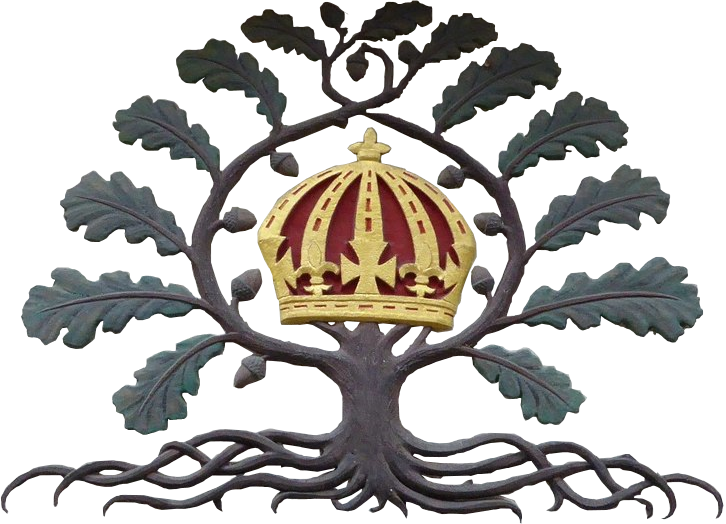
The Tories were a loosely organised political faction and later a political party, in the Parliaments of England, Scotland, Ireland, Great Britain and the United Kingdom. They first emerged during the 1679 Exclusion Crisis, when they opposed Whig efforts to exclude James, Duke of York from the succession on the grounds of his Catholicism. Despite their fervent opposition to state-sponsored Catholicism, Tories opposed exclusion in the belief inheritance based on birth was the foundation of a stable society.

Charles Noel Somerset, 4th Duke of Beaufort was a British Tory politician who sat in the House of Commons from 1731 until 1745 when he succeeded to the peerage as Duke of Beaufort.

Whiggism is a political philosophy that grew out of the Parliamentarian faction in the Wars of the Three Kingdoms (1639–1651). The Whigs' key policy positions were the supremacy of Parliament, tolerance of Protestant dissenters, and opposition to a "Papist" on the throne, especially James II or one of his descendants.

Samuel Sandys, 1st Baron Sandys, was a British Whig politician who represented Worcester in the House of Commons from 1718 until 1743, when he was created Baron Sandys. He held numerous posts in the government of the United Kingdom, namely Chancellor of the Exchequer, Leader of the House of Commons, Cofferer of the Household and First Lord of Trade. He was also a justice in eyre.
The 1727 British general election returned members to serve in the House of Commons of the 7th Parliament of Great Britain to be summoned, after the merger of the Parliament of England and the Parliament of Scotland in 1707. The election was triggered by the death of King George I; at the time, it was the convention to hold new elections following the succession of a new monarch. The Tories, led in the House of Commons by William Wyndham, and under the direction of Bolingbroke, who had returned to the country in 1723 after being pardoned for his role in the Jacobite rising of 1715, lost further ground to the Whigs, rendering them ineffectual and largely irrelevant to practical politics. A group known as the Patriot Whigs, led by William Pulteney, who were disenchanted with Walpole's government and believed he was betraying Whig principles, had been formed prior to the election. Bolingbroke and Pulteney had not expected the next election to occur until 1729, and were consequently caught unprepared and failed to make any gains against the government party.
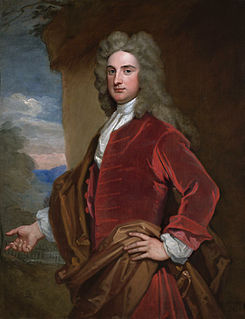
Sir John Rushout, 4th Baronet, of Northwick Park, Worcestershire was a British Whig politician who sat in the House of Commons for 55 years from 1713 to 1768. He was a supporter of Pulteney in opposition to Walpole, and was briefly part of an Administration. He was Father of the House from 1762.

The Harleyministry was the British government that existed between 1710 and 1714 in the reign of Queen Anne. It was headed by Robert Harley and composed largely of Tories. Harley was a former Whig who had changed sides, bringing down the seemingly powerful Whig Junto and their moderate Tory ally Lord Godolphin. It came during the Rage of Party when divisions between the two factions were at their height, and a "paper war" broke out between their supporters. Amongst those writers supportive of Harley's government were Jonathon Swift, Daniel Defoe, Delarivier Manley, John Arbuthnot and Alexander Pope who clashed with members of the rival Kit-Kat Club.

The Cobhamite faction were an 18th-century British political faction built around Richard Temple, 1st Viscount Cobham and his supporters. Among its members, the group included the future Prime Ministers William Pitt and George Grenville. They had a general Whig philosophy and were at first supporters of Prime Minister Sir Robert Walpole but later became opponents of his administration.
In Britain in the period from the 1680s to the 1740s, and especially under the Walpole ministry from 1730 to 1743, the Country Party was a coalition of Tories and disaffected Whigs. It was a movement rather than an organised party and had no formal structure or leaders. It claimed to be a nonpartisan force fighting for the nation's interest—the whole "country"—against the self-interested actions of the Court Party, that is the politicians in power in London. Country men believed the Court Party was corrupting Britain by using patronage to buy support and was threatening English and Scottish liberties and the proper balance of authority by shifting power from Parliament to the prime minister. It sought to constrain the court by opposing standing armies, calling for annual elections to Parliament, and wanted to fix power in the hands of the landed gentry rather than the royal officials, urban merchants or bankers. It opposed any practices it saw as corruption.
In British politics, a Whig government may refer to the following British governments administered by the Whigs:

The Whig Split occurred between 1717 and 1720, when the British Whig Party divided into two factions: one in government, led by James Stanhope; the other in opposition, dominated by Robert Walpole. It coincided with a dispute between George I and his son George, Prince of Wales, with the latter siding with the opposition Whigs. It is also known as the Whig Schism.
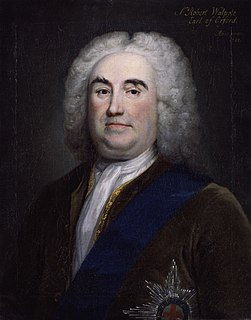
The Excise Bill of 1733 was a proposal by the British government of Robert Walpole to impose an excise tax on a variety of products. This would have allowed Customs officers to search private dwellings to look for contraband untaxed goods. The perceived violation of the Rights of Englishmen provoked widespread opposition and the bill was eventually withdrawn. Whig opposition MP William Pitt took the lead in criticising the proposal, invoking the concept that an "Englishman's house is his castle".
References
- Jeremy Black, British Foreign Policy in the Age of Walpole (London: Macmillan 1984; reissue Aldershott: Gregg Revivals 1993)
- H. T. Dickinson, Walpole and the Whig Supremacy (London: English Universities Press 1973)
- Christine Gerrard, The Patriot Opposition to Walpole: Politics, Poetry, and National Myth, 1725-1742 (London: Oxford University Press, 1995)
- Caroline Robbins, The Eighteenth-Century Commonwealthman: Studies in the Transmission, Development, and Circumstance of English Liberal Thought from the Restoration of Charles II until the War with the Thirteen Colonies (Cambridge, MA: Harvard University Press1959; reissue Indianapolis, IN: Liberty Fund 2004)